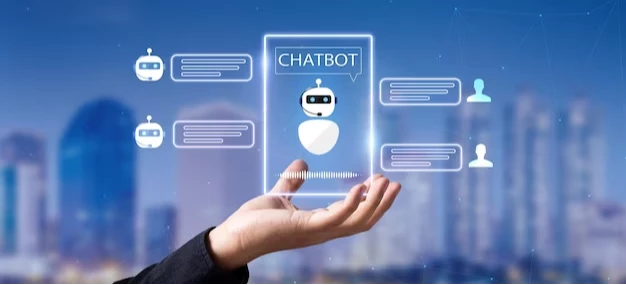- 14 Jun 2023
AI Chatbots: The Future of Customer Support

In the digital age, where customers expect immediate assistance and round-the-clock support, businesses are turning to AI-powered chatbots to revolutionize their customer service efforts. These intelligent virtual assistants are not just a technological novelty; they represent the future of customer support. In this comprehensive blog post, we'll dive deep into the impact of AI chatbots on enhancing customer service and why they are becoming indispensable for businesses of all sizes.
The Evolution of Customer Support:
Customer support has come a long way from phone-based call centers to email inquiries. However, the rise of AI and natural language processing has paved the way for chatbots, which offer several advantages over traditional customer support methods.
Benefits of AI Chatbots in Customer Service:
Instant Responses:AI chatbots provide immediate responses to customer queries, eliminating wait times and enhancing user satisfaction.
24/7 Availability:Chatbots are available round-the-clock, ensuring that customers can seek assistance whenever they need it, regardless of time zones.
Scalability:Chatbots can handle multiple inquiries simultaneously, making them highly scalable and cost-effective.
Consistency:Chatbots deliver consistent responses and information, reducing the risk of human errors in customer interactions.
Cost Efficiency:Automated chatbots can significantly reduce the cost of customer support operations by handling routine inquiries, allowing human agents to focus on more complex issues.
Personalization:Advanced chatbots can personalize interactions by analyzing user data and providing tailored responses and product recommendations.
Multilingual Support:Chatbots can communicate in multiple languages, expanding your customer base and serving a global audience.
Use Cases for AI Chatbots:
FAQs and Information Retrieval:
Chatbots excel at answering frequently asked questions, providing users with quick access to essential information.
Order Tracking and Updates:
Chatbots can offer real-time updates on order status, shipping details, and delivery times.
Product Recommendations:
AI-driven chatbots can suggest products based on user preferences, browsing history, and purchase behavior.
Appointment Scheduling:
In industries like healthcare, chatbots can assist users in scheduling appointments with service providers.
Technical Support:
Chatbots can troubleshoot technical issues and guide users through problem-solving steps.
Implementing AI Chatbots:
Define Objectives: Identify the specific goals and objectives you want to achieve with your chatbot, such as reducing response time or handling a certain volume of inquiries.
Choose the Right Platform: Select a chatbot platform or development framework that aligns with your business needs and resources.
Training and Data: Train your chatbot using historical customer interactions and continuously update it to improve its performance.
Integrate with CRM: Integrate your chatbot with customer relationship management (CRM) systems to provide a seamless experience and access to customer data.
Human Oversight: While chatbots can handle many tasks, ensure that there is a mechanism for human intervention when complex issues arise.
AI chatbots are not just a customer service trend; they are a transformative force that is reshaping the way businesses interact with their customers. By embracing AI chatbots, organizations can deliver faster, more efficient, and personalized customer support, ultimately enhancing customer satisfaction and loyalty. As technology continues to advance, chatbots are poised to become an integral part of the future of customer service.


